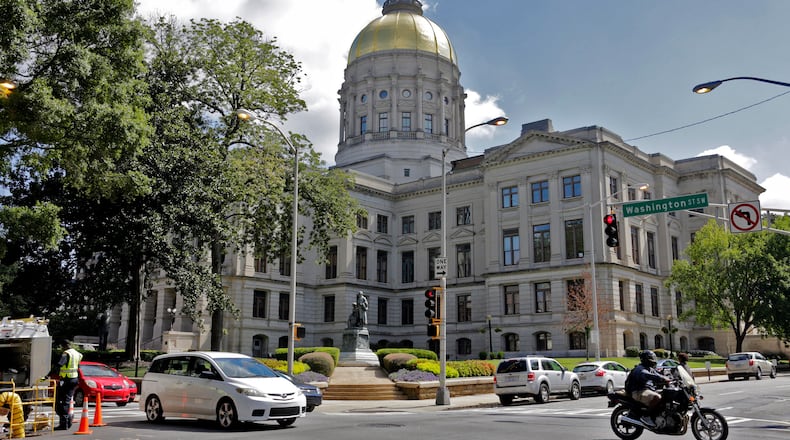Democratic representatives in the Gwinnett State House Delegation expressed their concerns over Georgia’s new voting law and how it could affect elections held in the county and across the state.
A panel of eight state representatives held a town hall at the Gwinnett Justice and Administration Center on Monday, at which they shared their thoughts on the last legislative session and took questions from their constituents.
All members of the delegation were invited, but none of Gwinnett’s Republican representatives attended. A director from the ACLU presented the organization’s concerns with Senate Bill 202.
“We did pass some good bills, but this was a very toxic session,” said Rep. Donna McLeod, of Lawrenceville. “SB 202 was predicated on a big, fat lie. I have a problem with legislators making legislation that affects 11 million people based on a lie.”
The change to Georgia’s voting law comes on the heels of the 2020 presidential election, in which Republicans alleged that President Joe Biden fraudulently won. There is no evidence of widespread fraud.
Echoed by her colleagues, McLeod stressed the need for full participation in upcoming election cycles, which need to be “open to everyone” and “easy to access.”
The voting law brings a number of changes to the way Georgia elections will work. Democrats say the law will restrict access and turnout, while Republicans say it will strengthen election security.
The use of absentee ballots will be restricted, including a limit on the number of drop boxes permitted in each county. The number of boxes will be capped at one per 100,000 people. They will be placed inside early voting locations, only to be used during in-person voting hours.
Under the law, the number of absentee ballot drop boxes in Gwinnett County will decrease from 24 to five.
Provisional ballots cast in the wrong precinct will no longer count under Georgia’s voting law. Statewide, election workers counted 3,357 provisional ballots cast in the wrong precinct in the 2020 election.
In 2018, an election worker told Rep. Jasmine Clark, of Lilburn, that she was voting at the wrong precinct. It turned out she voted at the correct precinct, but she would have cast a provisional ballot had she went to another precinct.
“Under SB202, those are the types of votes that would not count,” said Rep. Marvin Lim, of Norcross. “So there’s a very specific example from Gwinnett about how (the law) would disenfranchise more people.”
Clark said she’s mostly concerned with the ability for state officials to replace county election boards. The new law paves the way for the state Election Board to install new management after a performance review of a county board.
“Gwinnett has turned into that county that can decide elections,” Clark said. “If there’s an opportunity to find that Gwinnett isn’t doing right, our elections board will be taken over. I’m concerned what will happen in that process because it’s dark and no one really knows what happens next.”
Legislators also expressed their dismay with other bills signed into law, including Senate Bill 221 that will allow legislative fundraising while in session.
One of the bills that garnered praise was House Bill 479, which overhauls the state’s citizen’s arrest law. It came after the death of Ahmaud Arbery, a Black man who was followed by three white men who say they thought he was a burglar and shot and killed him in February 2020.
A livestream of the Gwinnett State House Delegation town hall can be viewed on the members’ Facebook page.
AJC reporter Mark Niesse contributed to this report.
About the Author
Keep Reading
The Latest
Featured



